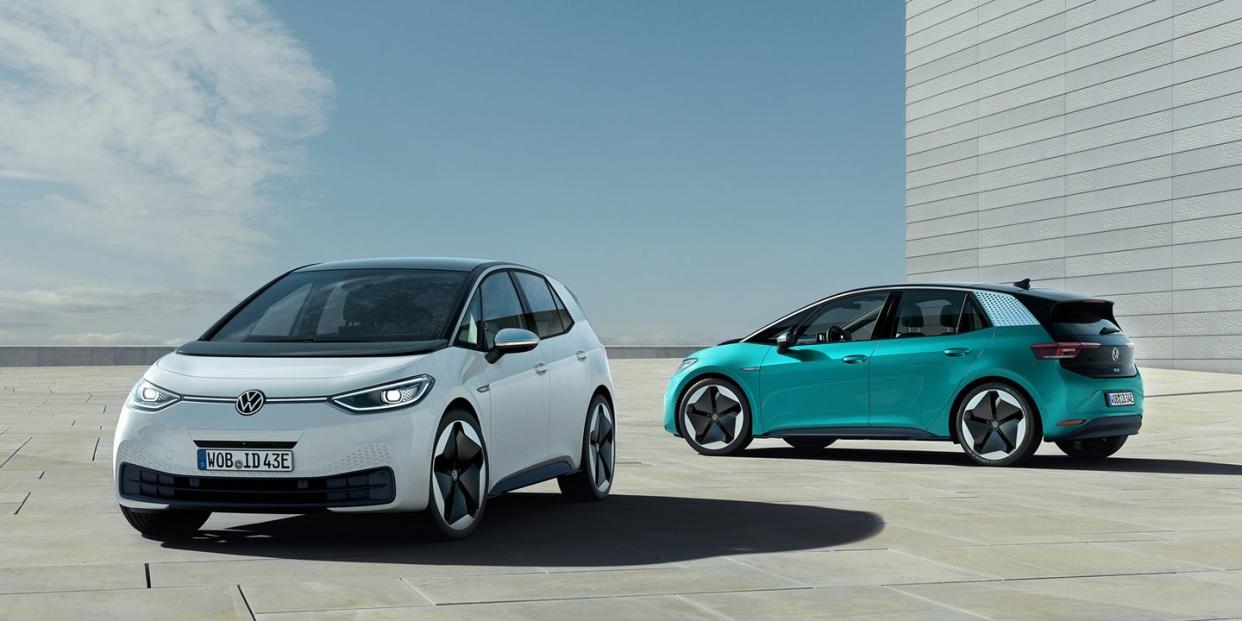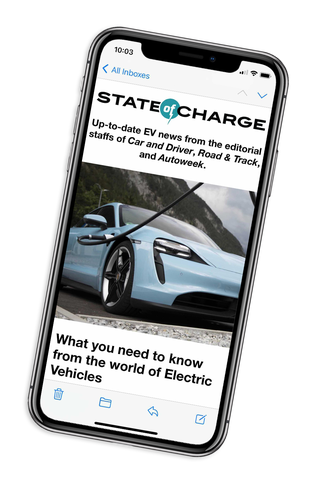Big Changes Coming at VW over the Next 10 Years

VW expects 50% of its US sales to be electric by 2030, while aiming for 70% EV sales in Europe by the same year.
Wolfsburg is developing a customer-centric digital ecosystem, with over-the-air updates to be released every 12 weeks for its new vehicles.
Charging and energy services are seen as another key to VW's profitability in the coming years, as well as autonomous driving capability.
The past decade has seen plenty of automakers try to rebrand themselves as providers of "mobility solutions" (among other terms borrowed from Silicon Valley). Being an automaker somehow became outdated, or at least became saddled with images of antiquated factories spewing thick plumes of smoke. The race to rebrand was on, fueled by fever dreams of robo-taxis and an eroding concept of vehicle ownership, our gleaming cities of the future relying instead on car sharing and clean mass transit.
While such a future will take a little longer to materialize than originally hoped, this hasn't stopped automakers from trying to become Silicon Valley tech giants, just as tech giants have been making cautious forays into "mobility" with car concepts, like Sony's Vision-S electric sedan.
Volkswagen is certainly among these. VW recently shared its vision on how it wants to become a "software-driven mobility provider," with a strategy dubbed Accelerate.
The transformation starts with a wave of EVs on the horizon, just as the ID.4 electric SUV prepares for its U.S. sales launch. Electrification, however, is just one part of Wolfsburg's strategy; the automaker is developing in-vehicle software with over-the-air (OTA) updates scheduled to launch later this summer, driven by its ID.Digital project. Updates will be beamed out every 12 weeks starting this summer, with VW aiming to have half a million vehicles on the road in two years' time capable of staying updated throughout their life cycles.
Another way in which VW plans to transform itself is through vehicle charging and energy services, as well as autonomous vehicle operation, which it says will become widely available by 2030. VW hints that some of these services will be subscription based, and will unlock "software-based functions that customers can reserve as needed," which may well include autonomy down the road. But being a provider of charging services is already a reality for VW, having launched Electrify America charging network several years ago in the US, whose charging services will be offered together with ID vehicle purchases and leases.
Wolfsburg also envisions a less complex lineup in its future, which will serve up production cost savings across the group, with software updates being able to increase a vehicle's options or capabilities, perhaps even including hardware updates though its life cycle.
"The company will also make the structure of the vehicle portfolio much less complex," Volkswagen says. "Future vehicle generations will be produced with a much small number of versions. The individual configuration will no longer be set through the hardware when the vehicle is purchased. The vehicle will have virtually everything on board and customers can add desired functions on demand at any time using the digital ecosystem in the vehicle. This will significantly reduce production complexity."

The MEB platform that will underpin the first big wave of Volkswagen Group vehicles has already spread to other brands such as SEAT, which will launch a Cupra version of the ID.3 in a matter of months. The MEB platform will also permit greater standardization across the group's vehicle offerings—even beyond the prolific Golf platform that has been used by VW, Audi, Skoda, and SEAT brands.
It remains to be seen, however, just how quickly various countries in Europe will be able to turn to EVs in the coming decade. The rate of EV adoption in Germany is likely to be vastly different from Belarus, where VW has a significant presence.
VW is a little more conservative about EV adoption in the US by 2030 than Europe, so there will still be room for gas-engined models even under these plans.
"We will still need combustion engines for a while, but they should be as efficient as possible, which is why the next generation of our core products—all of which are world models—will also be fitted with the latest generation of plug-in hybrid technology, with an electric range of up to 100 kilometers," said Ralf Brandstätter, CEO of Volkswagen.

